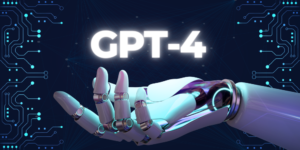Did you know? 52% of marketing professionals are using AI content creation tools in their strategies, a number expected to augment by 68% by the end of 2024. Artificial intelligence has grown as an evolutionary force in the content marketing industry, creating new paradigm shifts for businesses to reach their target audience. AI-based SEO-driven content is an example.
What is Content Marketing Strategy?
A marketing approach that creates and delivers valuable content to prospects and clients. Content-based campaigns require meticulous research and analysis for effective implementation. Market segmentation, target audience, and content marketing tools are synchronized according to the desired objectives, creating an impactful resonance in the customer’s minds.
Content marketing and planning is an intricate task, involving various methods and tools to promote a specific commodity. Examples include:
- Social Media Posts
- Blogs & Articles
- Infographics
- Emails
- Newsletters, Flyers, and Brochures
- Podcasts
- Videos
- Ebooks
Creating a Content Marketing Strategy
Broadly speaking, marketing strategies are based on the business and prospect’s requirements and the process by which it can be materialized. Although there are no specific templates for developing strategies, each brand or firm creates a purposeful pathway to achieve an optimal outcome. Below are some components for creating a template:
- Business Case (Find what works best for the company)
- Operations Plan (Manage processes and systems to execute a successful campaign)
- Audience Personas (Describe the image of the required audience)
- Brand Story (Develop content that resonates with the audience)
- Channel Plan (Select the appropriate platform(s) for communication)
With regards to content strategies, marketing executives brainstorm different ideas and techniques, keeping in mind the expected results. Following are some ways to create a strategy:
- Content Funneling
- Content Mapping
- 5-Point Strategy (Alignment, Audit, Production Plan, Performance Measures, and Distribution
Plan)
AI-Powered Content Marketing – A New Fangled Approach
According to Jeff Bezos, “AI will be part of every industry, enhancing our abilities in ways we can’t even imagine yet.” That’s a fact! Artificial intelligence is making headway in various disciplines, including education, law, economics, and business.
Its implementation is seen as a positive notion, reinforced by research companies that have observed a marked increase in revenues and productivity for every sector.
AI content creation and management tools are being used to improve working mechanisms, manage technical functions, enhance productivity, and more. In 2015, RankBrain, Google’s AI algorithm, changed the method of individuals consuming and creating content by visualizing their intent prior to listing search engine results. For example, ‘How to Cook Sushi’, a question posed by a user, would prompt the search bot to generate recipes pertaining to the dish, with literary and research-based articles to follow down the line.
Chatbots
Chatbots are a preferred method of communicating with clients around the world. According to Zendesk Trends Report 2023, 72% of firms will adopt chatbots for their online services (websites and social media pages) in the near future.
Advantages
Chatbots are optimal resources for several reasons, such as:
- Speedy Responses
- 24/7 Customer Support
- Direct Sales in DMs
- Multilingual Approach
Virtual Assistants
Whether it’s Amazon’s Alexa, Apple’s Siri, or Microsoft’s Cortana, virtual assistants play a vital role in the daily lives of human beings. It is an application program that comprehends NLVC (natural language voice commands) and acts accordingly. AI virtual assistants are being used in various sectors, such as healthcare, banking, and education.
Advantages
- Scheduling Meetings
- Providing Weather Reports
- Finding Hotels
- Setting Reminders
- Assisting in E-learning
AI Content Creation Tools
Text-oriented or visual content based on written prompts is what AI content management tools offer. Global businesses use web AI content-making tools or purchased versions to create reader-centric and engaging data for websites, social media, and other marketing platforms. The pace and perplexity of content can be managed accordingly.
Following are some of the best AI content marketing tools on the market:
- ChatGPT
- Jasper.ai
- Copy.ai
- Canva
- InVideo
- Synthesia
- Murf.ai
- Descript
Content Relationship Management Systems
Managing data for personalized marketing through AI systems is a critical step in achieving objectives. Most companies opt for CRM (customer relationship management) to build their trust and relationship with the client: AI is integrated into the system for quicker responses and results. CRM AI is a mechanized platform for evaluating, analyzing, and interpreting information. It provides predictive insights, automates routine tasks, renders customer-driven solutions, and more. According to Gartner, 70% of customer dealings will include the latest technologies, such as machine learning and NLP.
Enhance SEO
Improving the content marketing strategies, finding relevant keywords, and generating user-friendly information is part of AI and SEO. Companies are raring to opt for artificial intelligence to manage search engine optimization. On-page, off-page, and technical SEO will be managed with ease. Some of the best AI SEO tools are Scalenut, Keyword Insights, Diib, and more.
Is your firm ready for AI integration? Hop on the train and relish the experience!









